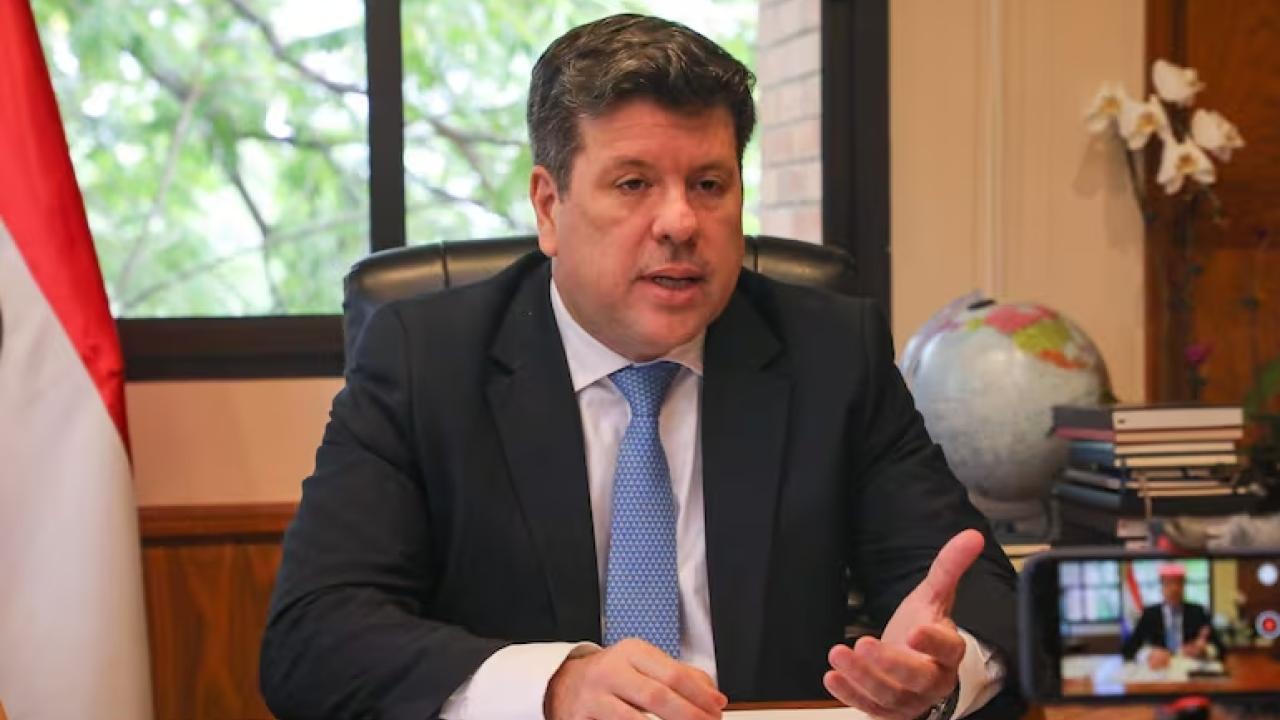
The Paraguayan Minister of Industry and Commerce analyzed the results of the European Parliament elections, which saw the European right gain ground, and the impact that this could have on the negotiations for the trade agreement between Mercosur and the European Union or the application of the regulation 1,115 to the products that Paraguay exports to Europe.
In communication with ABC Cardinal this Monday, the Minister of Industry and Commerce of Paraguay, Javier Giménez, commented on the results of the elections held last weekend, which generally saw the right gain ground, and the implications that these results would have. for the Guaraní country and Mercosur.
Paraguay and the economic bloc that it integrates with Argentina, Brazil and Uruguay continue to negotiate a long-standing free trade agreement with the European Union, which has encountered resistance in the European producing sectors and additional obstacles around Europe's demands in relation to care. of the environment in the context of production and export, which has been questioned by producers and Mercosur governments as an obstacle to their economic growth.
In addition, Paraguay continues to work with the European Union in the implementation of a traceability system for export products to comply with the provisions of regulation 1,115/2023 of the European bloc, which establishes that products cannot be imported to Europe if they come from territories deforested.
COULD REGULATION 1,115 BE ELIMINATED?
Regarding the possibility that a European Parliament with more weight on the right, whose exponents often downplay environmental issues such as climate change, could result in a repeal of regulation 1.115, Minister Giménez said that "it would be good for it to be eliminated and we can export freely," although he expressed doubts that this will happen.
Although the right gained ground in the last European Parliament elections – and notable victories of the extreme right and ultra-conservatives were also seen in several countries – the “pro-European” European People's Party managed to remain the leading force and could establish a new pro-European majority if it manages to ally itself with the social democratic, environmentalist and liberal blocs.
The minister believed that the recent large protests in Europe “were against the 'green agenda' measures', but expressed doubts that European producers dissatisfied with bureaucracy and environmental protection measures would welcome regulation 1,115 being implemented. repeal and allow the free entry of external products.
“I don't know if this turnaround in European politics is going to mean the elimination of 1,115,” he said. “Yes, it will mean the flexibility of Europe's internal environmental laws (...), but I have my doubts that this will extend to 1,115. "They are protectionists, these groups do not want to compete against Brazil, against Paraguay," he said.
HOW WOULD IT AFFECT AN EVENTUAL RE-ELECTION OF VON DER LEYEN?
It should be noted that Ursula von der Leyen, current president of the European Commission, has a good chance of obtaining reelection after the conservative victory in the recent European elections. The former German Defense Minister heads the list of the largest faction in the European Parliament, the center-right European People's Party (EPP).
Under a possible second term of Von der Leyen, the most important issue on the agenda with Latin American partners continues to be the issue of the controversial EU-Mercosur free trade agreement, pending for 22 years.
France and Ireland oppose opening the EU markets to imported agricultural products, especially beef, without more environmental commitments from the four Latin American partners, Argentina, Brazil, Paraguay and Uruguay. These countries, in return, protest against the "green protectionism" of the EU.
Von der Leyen's team had hoped to make a breakthrough late last year, but the issue appears to have been shelved again. The wave of farmers' protests in the EU will not make it easier for the next European Commission to finalize the agreement.









